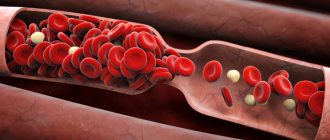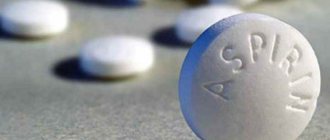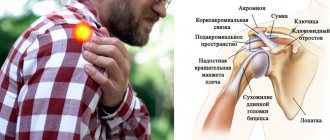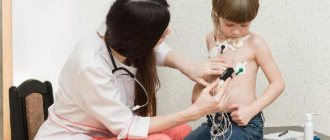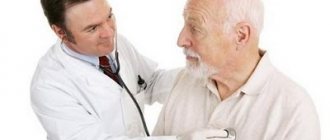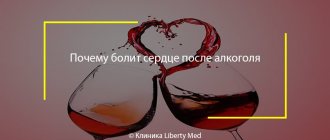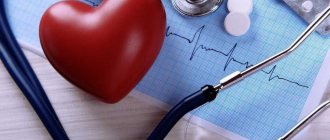Every day, thousands of people complain of pain syndromes in one organ or another. Pain indicates a dysfunction of the body, the presence of pathology. Unpleasant sensations in the heart area can be caused by a number of reasons and other factors. The appearance of symptoms is associated both with disorders of the cardiovascular system and with pathologies of neighboring organs. They put stress on the heart, thereby causing shooting pains in the heart.
Pain in the heart has different intensity, character, and frequency. Medical experts distinguish this type of heart pain:
- dull aching pain in the heart;
- sharp pain in the heart;
- cutting pain in the heart;
- acute pain in the heart.
The patient feels unpleasant sensations that interfere with normal life and do not allow normal functioning. Most often, pain syndromes in the heart area appear during physical activity. This problem is familiar to athletes and people who are associated with constant physical activity. Emotional stress and constant stress also affect the development of pathologies of the nervous and cardiovascular systems.
What, besides the heart, can hurt “in the area of the heart”?
First, we need to understand the various causes of chest pain and additional symptoms of possible diseases.
1. Pathologies of the respiratory system
. Chest pain, including in the heart area, can be a consequence of lung diseases - pleurisy, pneumonia, pneumothorax. It is worth paying attention to the accompanying symptoms - cough, chest tightness, difficulty breathing, increased body temperature.
2. Gastrointestinal pathologies
. Oddly enough, pain in the stomach, spleen and pancreas can feel like pain in the heart. Pay attention to symptoms such as: bloating, digestive problems, belching, nausea, heaviness in the abdomen, hunger pains, pain in response to eating fatty foods.
3. Neuralgia
- damage to peripheral nerves - often disguised as heart disease. Often accompanied by changes in skin sensitivity, muscle trembling, redness and itching of the skin, pain during inspiration.
4. Neoplasms
. Benign and malignant tumors in the chest area can cause pain. Do not forget to do fluorography, ultrasound of the mammary glands or mammography (for women) once a year - this is the best prevention of neoplasms. Many of them can grow in the body for years without symptoms.
5. Pathologies of
the osteoarticular apparatus
. Osteochondrosis, arthrosis, arthritis are often accompanied by chest pain, and older people tend to think that they have heart problems, but at a doctor’s appointment, completely different reasons for poor health are revealed. Diseases of bones and joints may also be accompanied by restrictions in movement and pain in the joint area, inflammation, redness and peeling of the skin.
6. Consequences of injuries
. Sometimes injuries do not make themselves felt immediately. You might not have noticed how you got a bruise during training, and a day later it will manifest itself as pain in the chest. Pain can be caused by tissue ruptures and vascular damage, fractures, and sprains.
7. Hormonal changes in the body
. Thus, chest pain can appear in adolescents and women during menopause.
Headache and dizziness - reasons and what to do about it?
06.03.2020
There is not a single person on planet Earth who has not at least once experienced headaches and dizziness . This usually happens due to simple fatigue, a change in atmospheric pressure, or other minor reasons. But it also happens that a headache is an indicator of serious, pathological processes occurring in the body. That is why if a person notices that dizziness and pain do not go away for a long time or appear regularly, you need to consult a doctor and undergo an examination.
Main symptoms and complaints
Headache and dizziness are often accompanied by additional symptoms:
- weakness and fatigue;
- feeling of anxiety and fear;
- vomiting and nausea ;
- disturbance of night sleep;
- blood pressure surges;
- confusion and lethargy.
Often vomiting and dizziness occur at the same time. Dizziness can occur with a sudden change in body position and excessive mental or physical stress; an increased urge to urinate , pain in the temples and general weakness are also possible.
Causes
Headache and dizziness can occur under different conditions. In some cases, this is a temporary phenomenon that simply brings discomfort, but sometimes it happens that symptoms appear in serious pathologies.
Non-hazardous factors that provoke headaches and dizziness:
- sudden change in body position. If a person quickly gets out of bed, then his body does not have time to react to these changes and the brain temporarily does not receive the required volume of blood ;
- Eye fatigue can also trigger headaches and dizziness ;
- stress. During severe emotional upheavals, cortisol and adrenaline are released the blood the blood vessels . Weak blood flow and high blood pressure prevent brain from being fully saturated with oxygen;
- lack of nutrients, vitamins and minerals also lead to dizziness and pain. Such symptoms are especially often observed with a lack of carbohydrates.
Dangerous causes of headaches and dizziness:
- head injuries lead to swelling that compresses the brain ;
- atherosclerosis . on the walls of blood vessels , which interfere with the blood flow , causing dizziness , fatigue and pain;
- brain neoplasms . Tumors can put pressure on brain tissue or squeeze blood vessels ;
- arterial hypertension. Pathological disorders of the autonomic system caused by high blood pressure;
- migraine. A widespread disease characterized by pathological vasoconstriction ;
- hypotension is manifested by low blood pressure and insufficient vascular .
You should not ignore headaches and dizziness A prompt contact with a specialist will help solve the problem or even save a life.
Published in Neurology Premium Clinic
Types of heart pain and cardiovascular diseases
- Aching pain is a frequent companion to angina pectoris (radiates to the shoulder blade, jaw and left arm), cardioneurosis and osteochondrosis.
- Pressing pain is one of the symptoms of cardiomyopathy, myocarditis, coronary insufficiency, and aortic dissection.
- Stitching pain often indicates damage to the cardiovascular system. It is a symptom of coronary heart disease, pericarditis, cardialgia, cardiomyopathy. Be careful: stabbing pain is also a symptom of myocardial infarction!
- Dull pain can indicate osteochondrosis, cardiomyopathy, true and false angina, and cardioneurosis. Sometimes this is a symptom of injury or diseases of the spine, such as scoliosis.
- Nagging pain is one of the most common types of pain in the heart area. There may be a symptom of myocardial infarction, an attack of angina, inflammation of the pericardium and psychogenic cardialgia. You definitely shouldn’t delay your visit to the doctor!
- Acute pain in the heart area with a pronounced burning sensation and squeezing can be a symptom of most cardiac and neuropathic diseases.
- Sharp, sudden pain is a reason to be wary and take action! It accompanies heart attack, coronary spasm, damage to chest tissue and aortic dissection.
- Pain radiating to the left arm indicates ischemia, neuralgia, psychogenic cardialgia and myocarditis.
- Constant pain is a symptom of angina pectoris, coronary artery disease, dyshormonal cardiomyopathy, pericarditis and myocarditis.
Always pay attention to the nature of the pain. If they become periodic, keep a diary, indicate the time and possible causes of pain, so that you can later tell your doctor about your observations. Do not ignore pain, especially constant pain that occurs repeatedly!
Pain is a signal that the body gives us when pathological changes occur in it. It is important to take action in time and start treatment.
The first signs of vascular complications and disasters
- hypertensive crisis;
- heart attack;
- transistor ischemic attack (TIA);
- stroke.
Symptoms of a hypertensive crisis:
- sudden onset within minutes or 1-3 hours;
- the blood pressure level is individually high (in one patient it is 240/120, in another – 130/90). This depends on the initial blood pressure level. If a patient has persistently low blood pressure, even a slight increase can cause a hypertensive crisis;
- presence of cardiac complaints (heart pain, palpitations);
- presence of complaints from the brain (headaches, dizziness, various visual impairments);
- the presence of complaints from the autonomic nervous system (chills, trembling, sweating, a feeling of a rush of blood to the head, a feeling of lack of air, etc.).
Symptoms of myocardial infarction:
- most common: pain and pressure in the chest,
Patients suffering from heart attacks may experience a variety of symptoms, such as:
- pain, feeling of fullness and/or squeezing in the chest;
- jaw pain, toothache, headache;
- shortness of breath;
- nausea, vomiting, general feeling of pressure in the pit of the stomach (upper center of the abdomen);
- sweating;
- heartburn and/or indigestion;
- pain in the arm (most often in the left, but can be in any arm);
- upper back pain;
- general painful sensation (vague feeling of malaise).
Symptoms of transistor ischemic as well as (TIA):
Typically, symptoms of transient ischemic attacks can last from a few minutes to an hour and include:
- feeling of weakness, numbness, tingling sensation in one half of the body;
- paralysis of arms or legs;
- visual disturbances (darkening of the eyes);
- loss of speech clarity;
These symptoms usually disappear completely within 24 hours, but may recur.
Symptoms of a stroke:
- sudden numbness or weakness of a certain part of the face, arm, leg (especially one-sided);
- sudden loss of vision in one or both eyes;
- sudden paralysis (usually one-sided);
- sudden dizziness or headache with nausea and vomiting;
- sudden difficulty speaking;
- difficulty swallowing;
- dizziness, loss of balance and coordination;
- loss of consciousness.
You can talk about an increased risk of stroke if:
- one or more of your blood relatives has had a stroke or myocardial infarction;
- you have been diagnosed with a tendency to microthrombosis;
- You suffer from arterial hypertension, angina pectoris, dyscirculatory encephalopathy;
- you have diabetes;
- you smoke or abuse alcohol;
- your lipid metabolism is disturbed (increased blood sugar and cholesterol levels), your body weight is significantly higher than normal;
- You have already had or currently have cerebrovascular accidents: neurocirculatory dystonia, transient ischemic attacks, hypertensive cerebral crisis.
How to prevent a stroke?
About half of strokes can be prevented. This is possible because many risk factors for stroke can be controlled. Here are these risk factors that can be prevented:
- High blood pressure (above 140/90 mmHg),
- Atrial fibrillation (a disease in which there is rapid chaotic contraction of the atria, resulting in blood clots in their cavities),
- Diabetes mellitus without adequate treatment,
- Increased cholesterol levels
- Smoking,
- Alcohol abuse
- Obesity,
- Disease of the carotid or coronary arteries.
To avoid vascular accidents, pay attention to your well-being in a timely manner. Get rid of risk factors (smoking, alcohol abuse, excess weight, physical inactivity). Monitor your blood pressure, blood sugar and cholesterol levels.
AND REMEMBER!
Regardless of the presence of complaints, once a year it is mandatory for everyone:
- undergo a fluorographic examination;
- measure blood pressure;
- visit an examination room (for women) and a urologist (for men);
- if you are over 40 years old, measure intraocular pressure, determine cholesterol and blood sugar levels, and undergo an ECG.
We wish you health and a long, interesting life!!!
Narab L.V.
What to do if you have heart pain?
Of course, consult a doctor! Don’t wait for a miracle, but make an appointment with a cardiologist and neurologist as soon as possible. If you have constant pain in the heart - dull, pulling, aching - you need to undergo an examination to identify cardiac pathologies.
If the pain is sharp, acute, sudden, accompanied by pallor of the skin, sweating, weakness, a feeling of suffocation or fainting, then it is necessary to urgently call an ambulance. This set of symptoms can be either a panic attack or a heart attack or myocardial infarction.
Be a friend to your heart - undergo annual examinations, maintain optimal weight, take medications strictly as prescribed by your doctor and lead a healthy lifestyle!
Be healthy!
